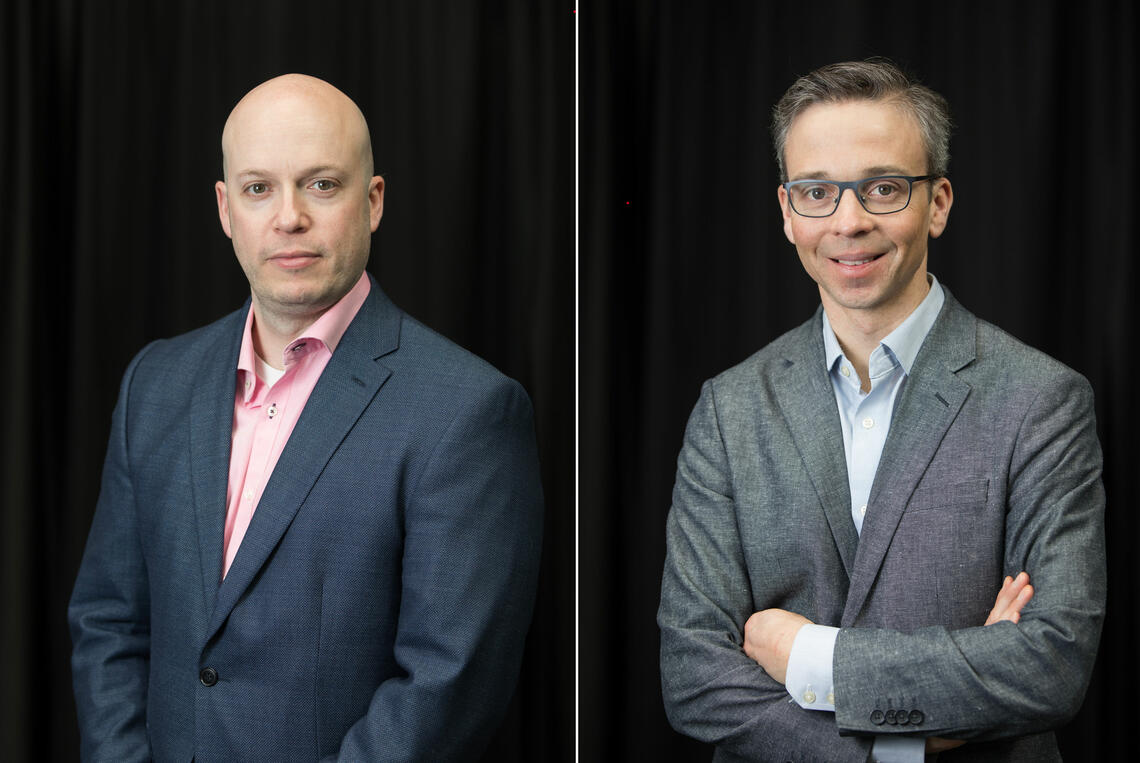Aug. 29, 2023
Research team investigates how behaviour changes can impact common heart rhythm disturbance
Atrial fibrillation (AF) is the most common arrhythmia, with as many as a million Canadians impacted. The condition can be debilitating, causing symptoms like irregular and rapid heartbeat, light headedness, extreme fatigue, shortness of breath, and chest pains. It’s also linked to sudden cardiac arrest, stroke and heart failure.
Scientists estimate up to one-third of Canadians will develop AF during their lifetime, so it’s also a growing problem.
Treating atrial fibrillation is a challenge. One important AF therapy is catheter ablation, which involves putting wires up through the veins of the leg to record electrical signals and cauterize the areas of the heart causing the abnormal rhythms.
But according to Dr. Stephen Wilton, MD, a Cumming School of Medicine clinician-researcher who specializes in arrhythmias, ablation only stops AF from recurring between 50 and 70 per cent of the time, and some individuals must undergo repeat procedures.
“Ablation treatment is becoming more common, and it works very well,” says Wilton. “But not everyone benefits from cardiac ablation.”

Robert Rose, left, and Stephen Wilton.
Libin Cardiovascular Institute
Wilton, along with other Calgary researchers, are part of a cross-Canada clinical trial, RASTA-AF, looking at the impact of treating risk factors like overweight and inactivity — which are amongst the known risk factors for AF — on the success rate of ablations.
RASTA-AF is collecting valuable clinical data that the UCalgary team is tapping into to undertake a new study with the goal of better understanding how treating the risk factors changes the pathways that drive AF to start and progress with time. The local group recently received a Heart and Stroke Foundation grant for this research.
“We still have a lot to learn about how AF starts and how it progresses,” says Wilton, co-principal investigator for the new study. “There is a need for research that gets at the basic biology behind AF, and that is the goal of this study.”
The group will recruit 250 patients and continue to collect the information required for the larger RASTA-AF study. The group will also take blood samples and do cardiac imaging tests to collect additional information.
They will use this data to look for blood biomarkers (molecules found in the blood) and patterns of change in the heart’s function and physiology, as well as novel things like inflammation.
Dr. Robert Rose, PhD, is co-leading the new study. His role is to investigate the blood biomarkers to better understand the underlying mechanisms of how behaviour modifications for AF patients might work.
“Our goal is to devise strategies to help patients increase the likelihood of positive outcomes after ablation,” says Rose.
Another goal of the study is to better predict those individuals who are likely to benefit from ablation, and who may be the best candidates for exercise and behavioural interventions.
Rose says this project involves scientists working across a variety of disciplines, from the laboratory to the clinic.
“This is an innovative research project that has the potential to impact patient care while also generating new mechanistic insight into a complex clinical problem,” says Rose. “Collaboration is critical for this project.”
Between 250 and 300 ablations for AF are undertaken in Calgary annually. That number represents only a small portion of the local AF population.
In addition to the Heart and Stroke Foundation, this research is being funded by the Libin Cardiovascular Institute and the Nova Scotia Health Authority.
Stephen Wilton is an associate professor in the departments of Cardiac Sciences and Medicine at the Cumming School of Medicine (CSM). He is a member of the Libin Cardiovascular Institute and the CSM’s O’Brien Institute for Public Health.
Robert Rose is a professor in the departments of Cardiac Sciences and Physiology and Pharmacology at the Cumming School of Medicine. He is the Libin Cardiovascular Institute’s deputy director and holds the D. G. Wyse/Libin Cardiovascular Institute Professorship in Cardiovascular Research.







